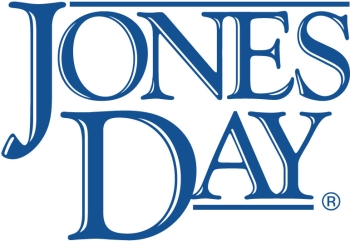Background
Facts
Lower court decisions
Supreme Court decision
On November 22 2011 the Supreme Court delivered judgment on the treatment of a claim for reimbursement regarding a salary payment made by a third party before the commencement of bankruptcy proceedings. The court ruled that a third party which makes salary payments to employees of a bankrupt debtor may enjoy priority in respect of its reimbursement claim in bankruptcy proceedings.
Under Japanese insolvency law, salary claims have priority over other general claims. Salary claims in the three-month period before the commencement of bankruptcy proceedings are treated as common benefit claims, whereas other salary claims are treated as prioritised bankruptcy claims. However, it was unclear whether a third party that pays a salary claim instead of an insolvent debtor (ie, an employer), obtains a reimbursement claim for such payment and is subrogated to the salary claim for which priority in insolvency proceedings is given can enjoy such priority in respect of its reimbursement claims. Academic opinion and previous decisions from the lower courts were divided on this issue.
The creditor, a newspaper distribution agency, entered into transactions with the debtor, a goods distributor. On August 21 2007 the creditor paid a salary claim of around Y2.37 million to the debtor's employees (as salary for the previous month) and the employees acknowledged subrogation by the creditor. The creditor took this action following an urgent request by the debtor, which explained that the salary payments made by the creditor would have priority in the bankruptcy proceedings (as salary claims enjoy such status). Thus, the creditor had a reimbursement claim against the debtor and was subrogated to the debtor's employees regarding their salary claim.
On August 29 2007 the court ordered the commencement of bankruptcy proceedings against the debtor. As the creditor's reimbursement claim had accrued before the commencement of proceedings, it was a general bankruptcy claim in the proceedings. However, the salary claims of the debtor's employees, to which the creditor was subrogated, were common benefit claims (which can be paid outside the proceedings under the Bankruptcy Law).
The creditor sued the debtor's bankruptcy trustee, demanding reimbursement outside the proceedings on the basis of the salary claims.
At first instance the Osaka District Court upheld the creditor's demand. It held that there were grounds to allow the creditor to exercise its claim as a common benefit claim on the specific facts of the case, although the creditor was not entitled to enjoy the priority treatment given to the original claim in respect of its reimbursement claim, as a reimbursement claim by a creditor that makes payment in subrogation is a general bankruptcy claim. The bankruptcy trustee appealed to the Osaka High Court.
The Osaka High Court annulled the first instance decision and rejected the creditor's request. It held that the creditor could exercise its reimbursement claim only as a general bankruptcy claim, despite the subrogation point. If the creditor were permitted to exercise its claim as a common benefit claim, this would be detrimental to the position of other creditors. Moreover, it would go beyond the law's aim of protecting the rights of workers, as this had already been achieved by the salary payments that the creditor had made. The court further stated that because the subrogated claim relating to the employees' salary claim was incidental to the creditor's reimbursement claim, where the reimbursement claim is a general bankruptcy claim, priority given to the original claim or the salary claim is given only to the extent of the reimbursement claim or the general bankruptcy claim.
Therefore, the creditor's claim could not enjoy the priority given to the original claim. The creditor appealed to the Supreme Court.
Supreme Court decision
The Supreme Court annulled the Osaka High Court decision and upheld the creditor's demand. It stated that:
"[S]ubrogation by payment… intends that the subrogated claim will be utilised as means of security for a reimbursement claim. This means that an original claim can be excised in order to secure the reimbursement claim to the extent that the substantial laws permit; and the exercise of the original claim shall not be restricted in equivalence to the reimbursement claim, even if such reimbursement claim is subject to bankruptcy proceedings as a general bankruptcy claim, because the original claim is permitted to be excised in such proceedings. Therefore, a person who acquired a common benefit claim by subrogation can exercise such common benefit claim outside the bankruptcy proceedings, even when such person's reimbursement claim against the bankrupt debtor is only a general bankruptcy claim. This rule does not deteriorate [the] positions of other creditors unduly, because other creditors were supposed to accept exercise of a common benefit claim by... original creditors or employees."
Two days later, another bench of the Supreme Court issued a similar decision on the treatment of a reimbursement claim in subrogation in civil rehabilitation proceedings. Future court practice will follow these Supreme Court judgments.
This article was first published by the International Law Office, a premium online legal update service for major companies and law firms worldwide. Register for a free subscription.



